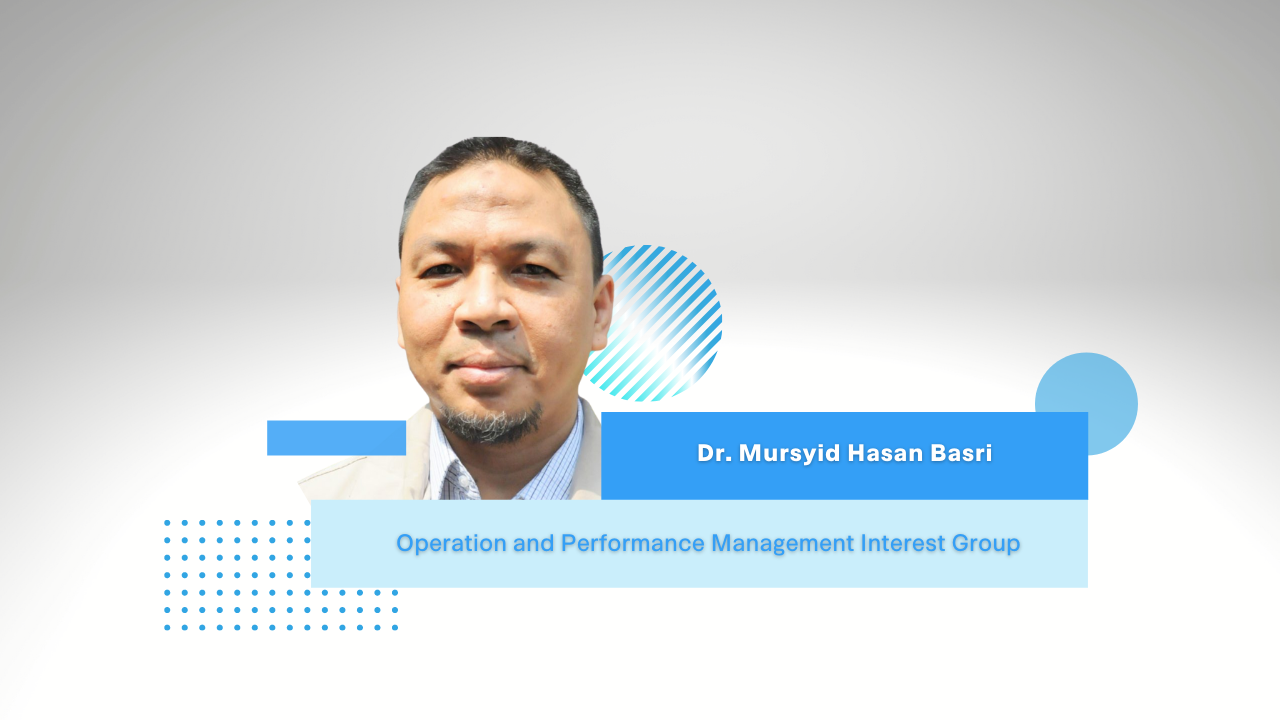“Previously, I never thought about becoming a lecturer or teacher.” That was the first sentence Mursyid Hasan Basri, a lecturer in the operational expertise and performance management group of the School of Business and Management, Bandung Institute of Technology (SBM ITB), uttered when he told his journey to become a lecturer. Even when he was in college, it never occurred to him that he would become a lecturer.
Everything changed when he completed his undergraduate studies majoring in Industrial Engineering, from the Bandung Institute of Technology in 1996. Like most of his friends, he tried to work after graduating from college. At that time, he got a job as a consultant in Jakarta. However, after four months, he felt that working in an office did not suit him.
“When I work, especially in Jakarta, I don’t feel like I have flexibility. Our life is not only about making money, and especially if you are married. I prefer to be close to my family rather than to be separated,” said Mursyid explaining his reason for deciding to change direction to become a lecturer.
Back then, it seemed that the universe supported Mursyid’s decision to become a lecturer. At the same time, right after he decided to quit his job, the Bandung Institute of Technology opened a vacancy for a lecturer. “At that time, the requirements to be a lecturer were not as difficult as now, so when I got the opportunity, I immediately tried it,” said Mursyid. When he was accepted as a lecturer, he immediately continued his master’s degree in Industrial Engineering at the Bandung Institute of Technology until 1998. Four years later, he did his doctorate in Social and Environmental Engineering, Hiroshima University, Japan.
His educational background in Industrial Engineering inspired him in pursuing an operational career. He has been a teacher at SBM ITB since 2005-2021. Apart from teaching, he is also actively involved in various research, especially related to the healthcare industry’s business processes and quality management. Currently, he is running a development project at a private hospital in Bandung. His project focuses on reducing the outpatient length of stay, drug storage management, and medical equipment maintenance.
Even though he has found his passion of being a lecturer, he still needs to learn and improve. “There is no best way, but there is always a better way. However, this method will not happen if we are not aware of our weaknesses and continuously improving. In principle, quality management as one of the materials in operations management teaches continuous improvement. So, let’s continuously improve every day,” concluded Mursyid.




